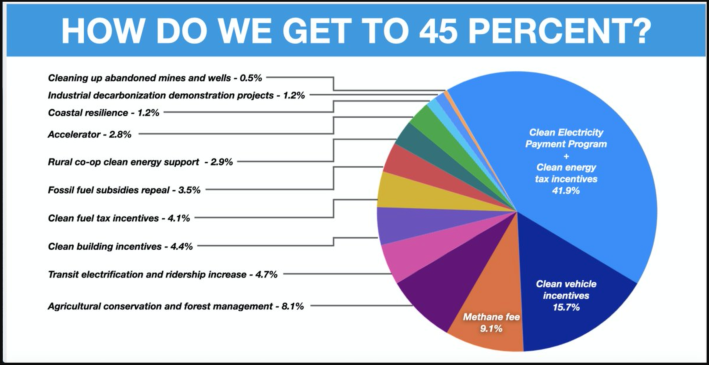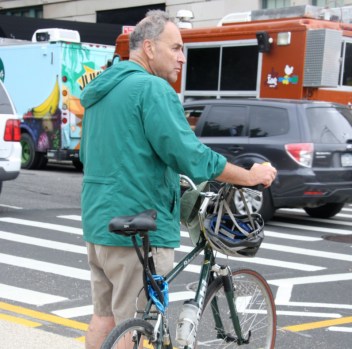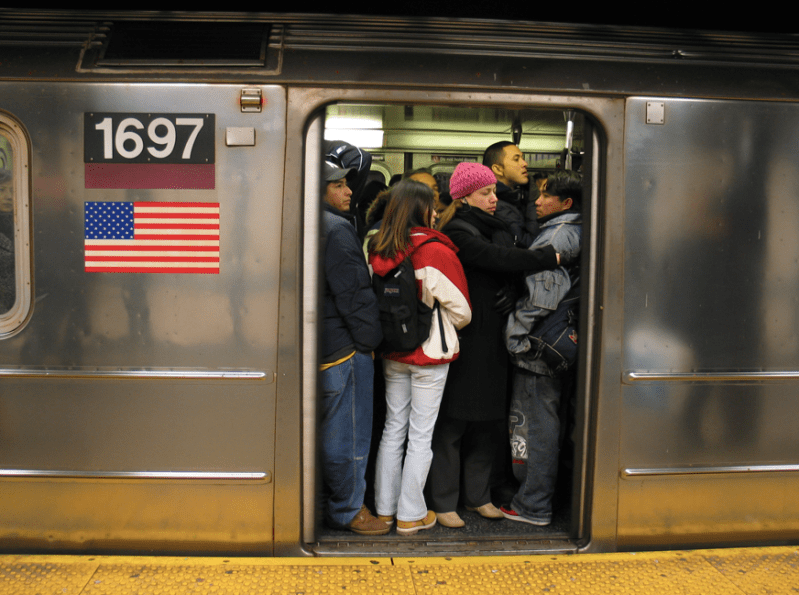
Last week, Brooklyn’s own U.S. Senate Majority Leader Chuck Schumer wrote to his colleagues urging swift passage of federal infrastructure and budget legislation (which was covered by Streetsblog USA). He argues the two bills will cut greenhouse gas emissions by 45 percent by 2030. The remaining 5 percent needed to meet President Biden’s goal of 50 percent reduction will, Schumer says, be achieved via federal administrative efforts and those of a handful of states. First among them, he names New York, where the 2019 Climate Leadership and Community Protection Act mandates an 85-percent greenhouse gas emissions reduction by 2050.
Both federal and state goals assume the long-term viability of New York’s iconic subway system. But that’s no sure thing. The pandemic has pummeled subway ridership; even now, having rebounded significantly since last spring, fewer than half as many people ride each day as two years ago. No matter whether former riders are working from home or driving to work, the MTA, which operates the subway, is starved of cash just the same. At the moment, federal aid is closing the MTA budget deficit, but it will widen to a multibillion dollar chasm once aid expires in a couple of short years.

New York’s subway isn’t just the perennial butt of attempted jokes by red state leaders and an endless font of inspiration for hometown artists and writers. It’s also an immensely efficient workhorse and the keystone of crucial environmental protections. Because New Yorkers rely on public transit and live densely packed in neighborhoods tied together by subways and buses, we each have one-third the carbon footprint of the average American. Nine million of us now are living comparatively low-carbon lifestyles that no government official can afford to jeopardize while also pursuing urgent, ambitious climate goals.
Among transit advocates and land use policy reformers across the country, there is great disappointment in the Senate infrastructure bill. It’s the product of a compromise between Senate Republicans and the Biden White House, not blue state heroes like Schumer, Elizabeth Warren (D-Mass.), or Sherrod Brown (D-Ohio). And it’s virtually certain to become law; the Democratic House majority will hold its nose and vote “yea” to secure the passage of the companion budget bill. To advocates’ chagrin, the infrastructure bill reflects a live-and-let-live attitude. It does virtually nothing to encourage other Americans to become more like transit-dependent, cramped-apartment New Yorkers. It pins its climate hopes instead on a what many see as a strikingly modest investment in electric vehicle infrastructure.

At a bare minimum then, if the Senate is unwilling to export New York’s low-carbon lifestyle, Congress must at least ensure New Yorkers ourselves can continue on our current path, better leverage our existing and extensive public transit infrastructure, and work to cut or combine unnecessary car trips. Unfortunately however, the MTA is on a trajectory that would result in steep fare hikes and deep service cuts to try (and almost certainly fail) to close an impending multibillion dollar budget gap. Ridership that is slowly recovering would crater, slashing revenue further, and sending America’s premier public transit system into a death spiral of further hikes and cuts.
The tragedy is, after Congress has already invested $14.4 billion in pandemic aid to the MTA, last summer’s threatened doomsday cuts could too easily become reality. If that happens, NYU’s Rudin Center warned last fall, New York could lose half a million jobs within the first year of service reductions. Not only would those job losses fall inequitably on families and communities least able to cope with them, but they would send people fleeing from America’s greenest city. Current trends all suggest that New Yorkers would depart for affordable areas of the South and West that are heavily car dependent, driving up the emissions of those displaced by US fiscal austerity and the collapse of New York’s infrastructure.
The alternative is bold action by Sen. Schumer, by far our most influential voice in Washington, to follow his massive MTA aid deals made earlier during the pandemic with funding legislation to stop the fare hikes and service cuts from going forward.
What New Yorkers need now is the reassurance that the transit system we depend on will be there for us as we build back and grow.
What the nation needs now — if we have any prayer of meeting the president’s climate goals — is to keep transit running, and moving as many people as quickly and reliably as possible, in the city that depends on it the most.
Danny Pearlstein is communications director for Riders Alliance, the transit advocacy group. He tweets at @dannypearlstein






